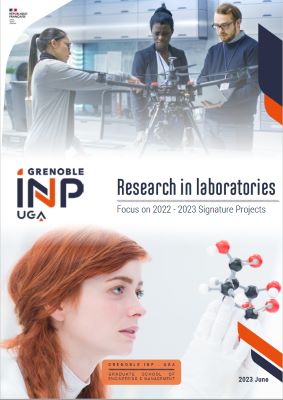
Ahlame Douzal, a researcher at LIG, became aware of the problem in 2018 while working with doctors on models for predicting the aggressiveness of prostate cancers. While amazed by the performance of the models it presented, practitioners were reluctant to adopt the technology without understanding it. She has therefore developed a software tool that allows Deep Learning models (which are among the most powerful in AI) to be developed in a way that is transparent by design and whose decision-making can be explained in an understandable way.
A unique tool in Europe
Called XPDeep, her invention gave rise in 2023 to the start-up of the same name, which won the i-Lab innovation competition that same year. In technical terms, XPDeep is what is known as a framework, i.e. a tool for generating AI models. 'XPDeep is the first general-purpose framework in Europe, freeing companies from dependence on tools from giants like Meta and Google,' says Stanislas Chesnais, co-founder of the start-up. 'Unlike these companies’ classic "black box" deep models, which are often incomprehensible, XPDeep's framework is designed to generate Deep Learning (DL) models that are transparent by nature. This transparency is key to building user trust while ensuring compliance with stringent regulations such as the AI Act and GDPR.'
XPDeep's technology is already in place in a variety of fields. It has, for example, helped to optimise how essential components are designed in the automotive sector, leading to significant cost savings compared to current standards by increasing models' precision. Such results are crucial at a time when technological sovereignty is becoming a strategic factor for Europe.
From January 2025, XPDeep will offer its solution as a cloud-based service, making it easier for businesses to access. With this offering, the start-up aims to become a key player in AI in Europe, offering solutions that are both high-performance and in line with transparency requirements. This approach marks the start of a new era in which understanding AI models and user confidence are paramount in the decision-making process.
*CNRS / Inria / UGA / Grenoble INP - UGA



